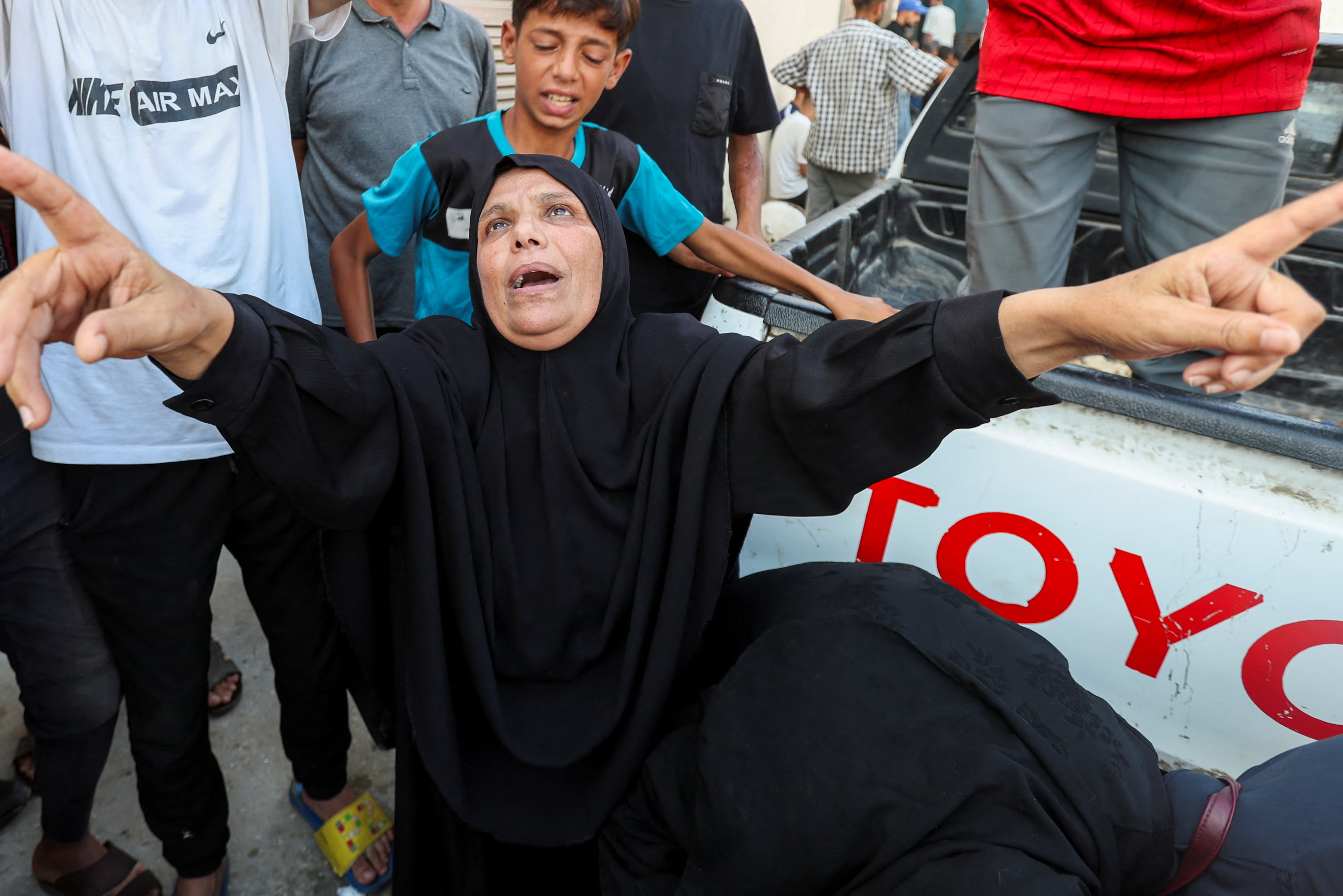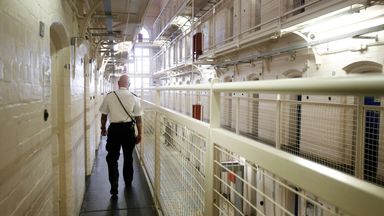Support truly
independent journalism
Support Now
Our mission is to deliver unbiased, fact-based reporting that holds power to account and exposes the truth.
Whether $5 or $50, every contribution counts.
Support us to deliver journalism without an agenda.

Louise Thomas
Editor
An Israeli hostage has been rescued in "a complex rescue operation" in the southern Gaza Strip, the military has said, more than 10 months after he was abducted by Hamas in the attack of 7 October.
It said 52 year-old Qaid Farhan Alkadi, a member of the Bedouin community in southern Israel, had been transferred to hospital and his medical condition was normal.
Military spokesperson Rear Admiral Daniel Hagari said Alkadi had been rescued in an underground tunnel but gave no details of the operation, citing the security of the remaining hostages and Israeli forces. "We will not rest until we complete our mission to bring all our hostages back," he told a briefing.
The rescue was hailed by Israeli leaders, desperate for good news almost a year into a grinding campaign that has seen pressure mounting on the government to do more to bring the hostages back home.
President Isaac Herzog said the rescue was "a moment of joy for the State of Israel and Israeli society as a whole".
Mr Alkadi was taken hostage in Kibbutz Magen, one of a string of communities around the Gaza Strip that were attacked on 7 October.
Israel's Channel 12 showed Mr Alkadi's family members sprinting through the hospital where he was brought after they received the news.
His brother, Hatem, told reporters they saw him disembark from a helicopter and walk to the ambulance that took him to a nearby hospital for medical checks
"We're so excited to hug him and see him and tell him that we're all here with him," a family member who gave his name as Faez told Channel 12. "I hope that every hostage will come home so the families can experience this happiness."
Some 250 people were abducted in the 7 October attack, dueing which some 1,200 people, mostly civilians, were killed. Israel's retaliatory offensive has killed more 40,000 Palestinians, according to Gaza health officials, who do not differentiate between civilians and militants. It has displaced 90 per cent of Gaza's 2.3 million people from their homes and caused heavy destruction across the besieged territory.
Israel believes there are still 108 hostages inside Gaza and that more than 40 of them are dead. Most of the rest were freed during a weeklong ceasefire in November in exchange for the release of Palestinians imprisoned by Israel. Israel has rescued a total of eight hostages, including in two operations that killed scores of Palestinians. Hamas says several hostages have been killed in Israeli airstrikes and failed rescue attempts. Israeli troops mistakenly killed three Israelis who escaped captivity in December.

In Gaza, Palestinians displaced by fighting crowded onto the seashore as Israeli forces continued to bombard central and southern areas.
Gaza's health officials reported that at least 22 Palestinians had been killed by Israeli military strikes across the territory.
As ceasefire talks were continuing in Cairo with little sign of a concrete breakthrough over key issues separating the sides,
In recent days, Israel has issued several evacuation orders across Gaza, the most since the beginning of the war, prompting an outcry from Palestinians, the United Nations, and relief officials over the absence of safe areas.
Residents and displaced families in the southern city of Khan Younis and Deir al-Balah, in central Gaza, where most of the population is now concentrated, said they have been pushed to live in tents now packed on the beach.
"Maybe they should bring ships, so next time they order people to leave we can jump there, people are now on the beach near the seawater," said Aya, 30, a displaced woman from Gaza City, who now lives with her family in western Deir al-Balah.
"Every day they say talks are progressing, an agreement is close, then all falls like dust. Do negotiators know that every day more families get wiped out by Israeli bombardment? Does the world understand that every day more costs us more lives?" she told Reuters.
Palestinian health officials said Israeli strikes killed nine Palestinians in Bureij and Maghazi, two of Gaza's eight historic refugee camps, while another strike killed five people in Khan Younis and a third killed three others in Rafah.
At the Al-Aqsa Hospital in Deir al-Balah, relatives of those killed in Maghazi camp arrived to say farewell to their loved ones before burials.
"Suddenly we heard them saying that they (Israel) struck the building, they struck the building, we started calling them on their mobile phone but no one was answering, then we called the neighbours and they told us that the building has been struck, the missile fell inside our son's house," said a Palestinian woman named Umm Mohamed Thabet.
She said her daughter and her daughter-in-law had been killed, along with her 12 and five-year old grandsons and a granddaughter, whose twin survived.
"Those who are inside the house, look who they are, women and children, these are their targets."
Later on Tuesday, an Israeli air strike killed five Palestinians, including three children, in Khan Younis, medics said.
On Monday, United Nations aid operations in Gaza ground to a halt after Israel issued new evacuation orders on Sunday for Deir al-Balah, where the UN operations centre was located, a senior UN official said.
The evacuation order came as the UN has been preparing a campaign to vaccinate an estimated 640,000 children in Gaza against polio, after at least one case of the disease was identified.
Although there has been optimism from the United States, which is supporting ceasefire talks in Cairo along with Egypt and Qatar, Hamas and Israel have been trading blame for a lack of progress.
Among the main sticking points has been Israel's insistence on maintaining control over the so-called Philadelphi corridor on the border with Egypt, which Israel says has been used as one of the main routes for smuggling weapons into Gaza.
Israel has also insisted on checks on people moving from southern and central Gaza into northern areas across the Netzarim corridor, running across the centre of the Gaza Strip, saying it needs to ensure armed fighters cannot move north.
Reuters
Disclaimer: The copyright of this article belongs to the original author. Reposting this article is solely for the purpose of information dissemination and does not constitute any investment advice. If there is any infringement, please contact us immediately. We will make corrections or deletions as necessary. Thank you.



